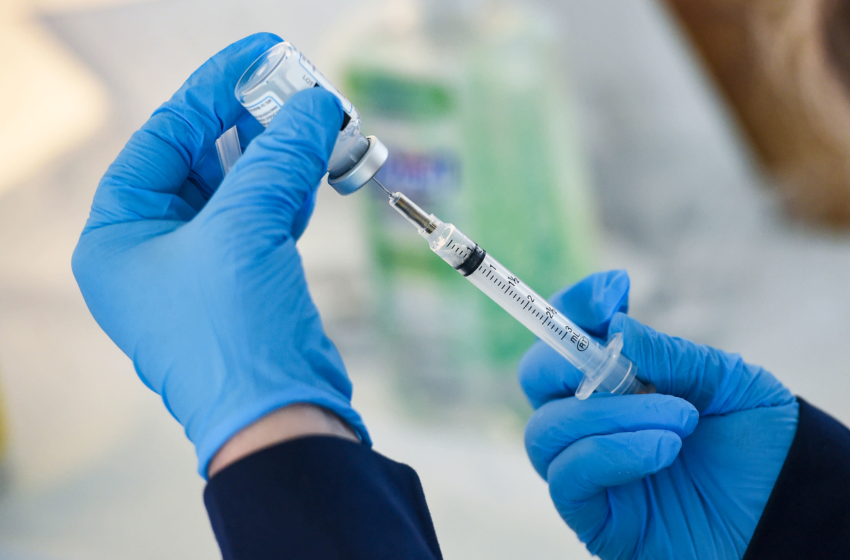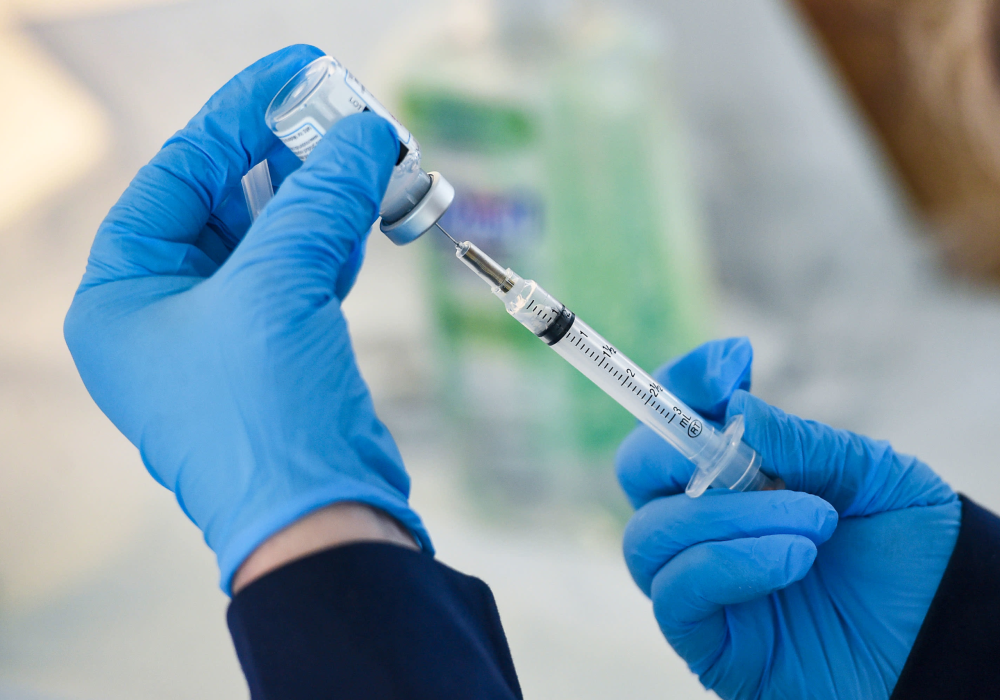A healthcare worker fills a syringe with Moderna COVID-19 vaccine at the Giorgio Companies site in Blandon, PA where the CATE Mobile Vaccination Unit was onsite to administer Moderna COVID-19 Vaccines to workers, April 14, 2021.
Ben Hasty | MediaNews Group | Reading Eagle via Getty Images
Moderna started a clinical trial to study the safety and effectiveness of a booster shot that specifically targets the omicron Covid variant, the company announced Wednesday.
The first participant in the phase two trial has already received a dose of the omicron-specific booster shot, according to the company.
Moderna expects to enroll about 600 adult participants ages 18 and over split equally between two groups. Participants in the first group will have previously received two-doses of Moderna’s original vaccine, and participants in the second group will have previously received the two-dose vaccine and the currently authorized booster shot.
Participants in both groups will receive a single dose of the omicron specific booster.
Moderna also published data on how its 50 microgram booster shot is holding up against omicron. Six months after the third shot, the antibodies that block omicron infection declined, but they still remained detectable in all participants. The data indicates that while the booster weakens over time, it still provides protection against the variant.
The neutralizing antibodies triggered by Moderna’s existing booster declined faster when pitted against omicron, 6.3 fold, compared with a decline of about 2.3 fold against the original strain of the virus over the same time period.
CEO Stephane Bancel said Moderna is reassured the neutralizing antibodies against omicron remain detectable after half a year.
“Nonetheless, given the long-term threat demonstrated by Omicron’s immune escape, we are advancing our Omicron-specific variant vaccine booster candidate,” Bancel said.
Bancel previously said people who received their boosters last fall will likely have enough protection to see them through this winter. However, he cautioned that people might need fourth shots in the fall of 2022 because the strength of boosters will likely decline, as was the case with the original two-doses of the vaccine.
“I will be surprised when we get that data in the coming weeks that it’s holding nicely over time — I would expect that it’s not going to hold great,” Bancel said earlier this month, referring to the strength of the booster shots.
Pfizer and BioNTech said they started testing their omicron-specific vaccine on people earlier this week, enrolling 1,420 participants ages 18 to 55. The companies expect to have the shots ready by March.
Moderna and Pfizer are racing to produce shots that target omicron amid growing concern the effectiveness of the current vaccines will not hold up as the virus mutates.
Omicron has dozens of mutations, many of which are on the spike protein that the viruses uses to invade human cells. The vaccines were designed to target the spike on the original virus strain detected in Wuhan, China at the start of the pandemic. As the spike mutates further and further from the original strain, it becomes more difficult for vaccine-induced antibodies to combat the virus.
Omicron has spread faster than any previous variant, causing an unprecedented wave of infection that has put pressure on health-care systems around the world. The variant generally does not make people as sick as the delta strain, though it can still cause severe disease.
In the two months since the detection of omicron, the virus has infected more than 80 million people around the world, more than all the reported cases in 2020, and has killed more than 386,000 people, according to data from the World Health Organization. The delta variant, which was dominant before being eclipsed by omicron, is also likely responsible for many of those infections and deaths.
Officials at the WHO have repeatedly warned more variants will likely emerge as omicron rapidly spreads. Maria Van Kerkhove, the WHO’s Covid-19 technical lead, said on Tuesday that the next variant will be more contagious than omicron.
“The next variant of concern will be more fit, and what we mean by that is it will be more transmissible because it will have to overtake what is currently circulating,” Van Kerkhove said. “The big question is whether or not future variants will be more or less severe.”










